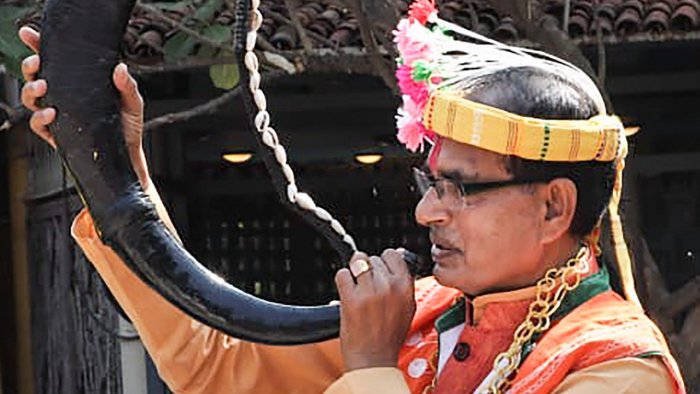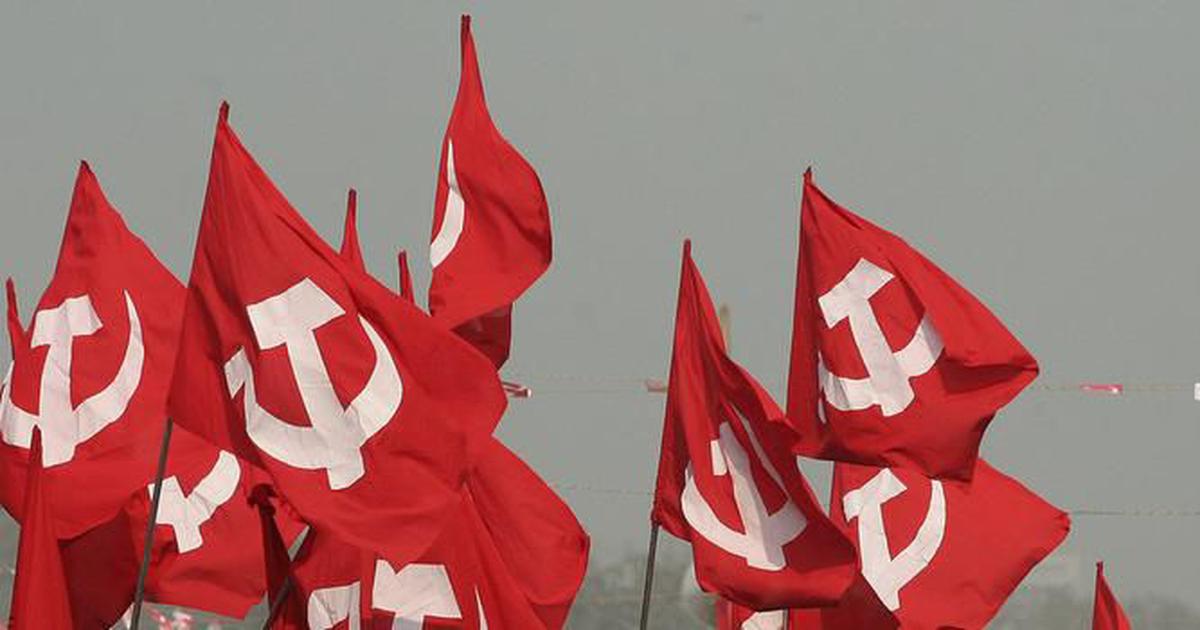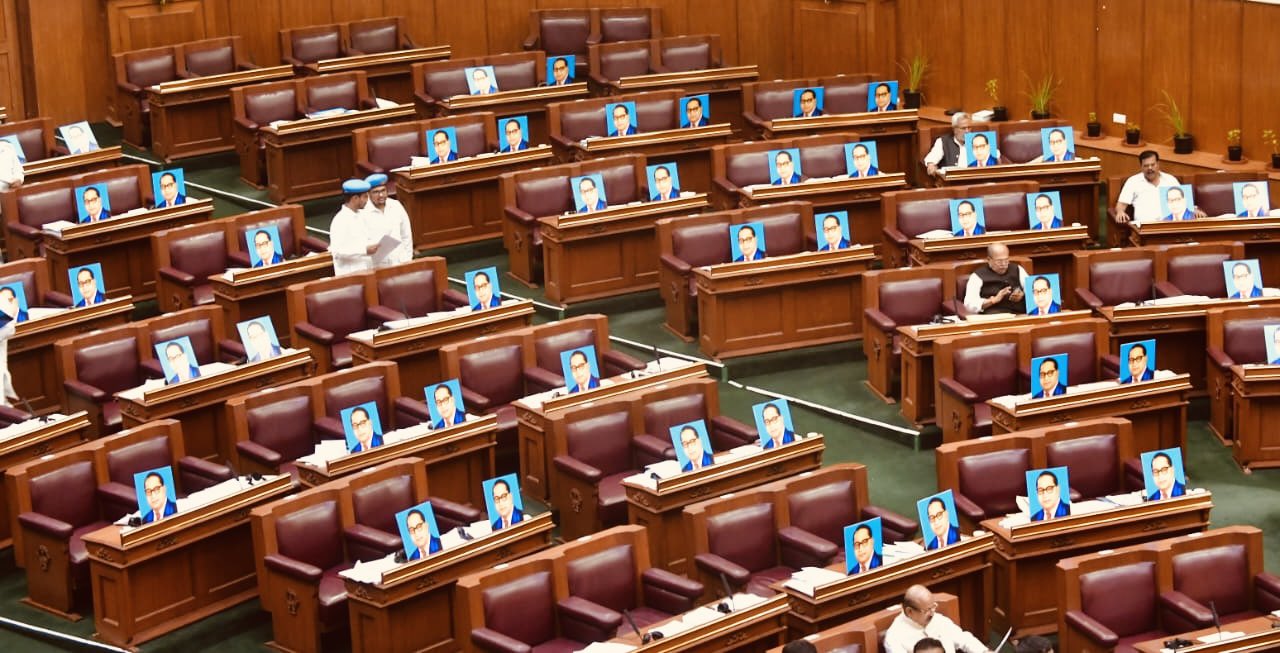On 4 December, the martyrdom day of Tantya Bhil, Madhya Pradesh Chief Minister Shivraj Singh Chauhan announced the implementation of the Panchayats (Extension to the Scheduled Areas) Act, 1996 in the state. However, organizations working for Adivasi self-governance and rights claim that the rules framed by the state government under the Act have effectively smothered the soul of the statute.
They say that the PESA Rules 2021, notified by the government, seek to alter the provisions of the 21-year-old law. Their key objection is related to the replacement of Sections 4(b) and 4(d) of the Act, which are about the constitution of the Gram Sabhas, by Section 5(a) of the Madhya Pradesh Panchayati Raj Evam Gram Swaraj Adhiniyam, 1993. Tradition dictates that all residents of a village, whether adults or minors, are members of the Adivasi Gram Sabha concerned. Section 4(b) of the PESA Act says, “A village shall ordinarily consist of a habitation or a group of habitations or a hamlet or a group of hamlets comprising a community and managing its affairs in accordance with traditions and customs.” Section 4(d) stipulates that “Every Gram Sabha shall be competent to safeguard and preserve the traditions and customs of the people, their cultural identity, community resources and the customary mode of dispute resolution.”
Section 4(e) of the PESA Act specifies the authority and the powers of the Gram Sabhas in the Scheduled Areas. But the Madhya Pradesh PESA Rules 2021 confine their powers to those listed under the Madhya Pradesh Panchyati Raj Evam Gram Swaraj Adhiniyam, 1993. Those fighting for Adivasi rights say that Section 4(n) of the PESA Act bars higher panchayats from assuming the powers and authority of the Gram Sabhas. However, the Madhya Pradesh PESA Rules 2021, by designating the Gram Sabhas as agents of the Zila and Janpad Panchayats, encroach upon the very intent of the Act.
Under Section 35 of the PESA rules 2021, the Gram Sabhas have been invested with powers over the natural resources, agriculture and land only within the jurisdiction of the Gram Panchayat whereas in the Adivasi tradition, these powers extend up to the boundaries of the area occupied by the community. The Forest Rights Act 2006 provides for extending dwelling rights to the Special Backward Tribes. Thus, it is imperative to define the boundaries of natural resources, agriculture and land in keeping with the dwelling rights of the Adivasis. Similarly, under the Forest Rights Act, the Gram Sabhas enjoy rights over community forest resources. But the Madhya Pradesh PESA Rules 2021 do not have any such provision.

Activists campaigning for Adivasi self-governance rights say that the state government has made some of its laws like the Sahukari Act, Land Revenue Code and Excise Act compatible with PESA. But the same has not been done vis-à-vis laws related to forests and land. As such the Gram Sabhas will not be the owners of the minor forest produce. The Centre has included bamboo among minor forest produce but the state government has excluded it from the list. Consequently, Adivasis won’t have rights over the bamboo growing in the forests. In light of the provisions of Part X of the Constitution of India, changes are required in the Indian Forests Act 1927 to secure the right of Gram Sabhas in the management of forests in the Scheduled Areas.
What is PESA?
The PESA Act essentially aims at the decentralization of powers and granting autonomy to the Adivasi community. Under PESA Act, the Gram Sabhas have the right to: 1. Mandatory consultation in matters related to land acquisition and rehabilitation of the affected people 2. Conservation of traditional beliefs and culture of Adivasi communities 3. Ownership of minor forest produce 4. Resolution of local disputes 5. Prevention of land alienation 6. Management of village markets. 7. Enforcement of prohibition or regulation or restriction of the sale of any intoxicant. 8. Control of moneylending; and many other rights related to the Scheduled Tribes. The Gram Sabha can exercise these rights in keeping with its traditional practices and customs. Numerous judicial pronouncements in different cases have made it clear that the Gram Sabha – and not the Gram Nyalalaya (village court) – will be supreme in the Scheduled Areas. In an important judgment delivered on 18 April 2013, the Supreme Court unambiguously stated that Vedanta Limited and Odisha Mineral Corporation would have to seek the permission of the Gram Sabha for mining in Kandhamal district, Odisha, dominated by the Kondh Adivasis because the consequential displacement would not only threaten the livelihoods of the Adivasis but also violate their social, cultural and religious rights. The court also said that Vedanta would not only have to obtain environmental clearance but also ensure that the legal rights of the Adivasis are protected. The court said that the Union Forests and Environment Ministry would have to follow the environment conservation law and its decisions would have to be based on the decisions of the Gram Sabha. This case is known as the Vedanta case.
Activists working for Adivasi self-governance say that under Section 4(o) of the PESA Act, 1996, the state governments were supposed to frame rules regarding administrative arrangements in the Fifth Schedule Areas through autonomous councils. But no state has implemented this provision to date. In this context, it would be pertinent to refer to the report of the Jharkhand Vidhan Sabha’s committee on Zila Parishad and Panchayati Raj – headed by Chaibasa MLA Deepak Birua – submitted to the Speaker Dinesh Oraon on 23 March 2016. The report said that the PESA Act was not being properly implemented in the state and that the state government was yet to lay down clear rules and regulations for the implementation of the Act. Referring to the provisions of the PESA Act, the committee said that autonomy should be given to the Autonomous Councils at the district level and to Gram Sabhas at the lower level. It said that the administrative arrangements in the Scheduled Areas, as stipulated by the Jharkhand Panchayati Raj Act 2001, are not in consonance with the PESA Act. It noted that according to the notification issued by the President of India, 12 districts, three blocks and two Panchayats in the state have been declared as Scheduled Areas. As such, according to the PESA Act, the administrative structure in these areas should be in keeping with the Sixth Schedule.
People’s take
Congress MLA and founder of Jay Adivasi Yuva Sangathan (JAYS), Hiralal Alawa, said that the state government did invite suggestions and objections on PESA Rules from the general public but the exercise was a mere formality, for none of the suggestions and objections was considered. He says that this sudden outpouring of love from the state government for the Adivasis was politically motivated.
Jatan Uikey, former Congress MLA from Pandhurna (Chhindwara) and a former chairperson of the Pandhurna Janpad Panchayat, questions the motives of the government. He says that the rules under the Act, framed 25 years after its promulgation, were a device for cheating the Adivasis. He says that the rules will kill the very soul of the Act. According to him, the state government is using the rules to undermine the Forest Rights Act 2006 and the Right to Fair Compensation and Transparency in Land Acquisition, Rehabilitation and Resettlement Act 2013. If the government’s motives are clean, it should give the Gram Sabhas the powers stipulated under Section 4(b) and 4(d) of the PESA Act. He said that the reference to the Land Acquisition Act 1984 in the rules was questionable. He says that in the days to come, the state government plans to hand over land in the Adivasi areas to the industrialists close to the Bharatiya Janata Party (BJP), because of which it has avoided reference to the Right to Fair Compensation and Transparency in Land Acquisition, Rehabilitation and Resettlement Act 2013.
Raj Kumar Sinha, national convenor of organizations that have been working for a long time for self-governance in Adivasi areas and for protecting the traditional rights of the Adivasis, is also dissatisfied with the rules. He says that if the conscience of the Shivraj Singh Chouhan government was clear, it would have invited suggestions and objections from the public before framing and implementing the rules. But this was not done. In Chhattisgarh, he says, consultations were held with the Adivasi community and suggestions were invited from the general public before drafting the rules. He said that under the PESA Act, seeking recommendations of the Gram Sabhas in matters related to land acquisition, rehabilitation and mining has been made mandatory. But the Madhya Pradesh government has restricted these rights through the PESA rules.
Amarnath Bhai, an activist working for the protection of the rights of Dalits and the Adivasis, who is presently based in Gujarat, says that the entire exercise is futile. According to him, whether it is the PESA Act or the rules for its implementation, unless the Adivasi community itself comes forward and launches a front, no progress will be made no matter how many acts and rules are made. He said that even in states where PESA rules have been framed, the administrative machinery has ensured that nothing changed on the ground. He said that Forest Rights Act 2006, Gram Nyayalayas Act 2008 and Land Acquisition Act 2013 have, in one way or another, served to weaken the provisions of the PESA Act. This is what is now happening in Madhya Pradesh.
Attempts to contact Meena Singh, minister for Scheduled Tribe Affairs, Madhya Pradesh, to seek her comments on these issues failed. A spokesperson for the state unit of the ruling BJP said that he would be able to comment only after studying the rules. If and when official comments from them are received, they will be included in the story.
(Translation: Amrish Herdenia; copy-editing: Anil)
Forward Press also publishes books on Bahujan issues. Forward Press Books sheds light on the widespread problems as well as the finer aspects of Bahujan (Dalit, OBC, Adivasi, Nomadic, Pasmanda) society, culture, literature and politics. Contact us for a list of FP Books’ titles and to order. Mobile: +917827427311, Email: info@forwardmagazine.in)
The titles from Forward Press Books are also available on Kindle and these e-books cost less than their print versions. Browse and buy:
The Case for Bahujan Literature
Dalit Panthers: An Authoritative History







